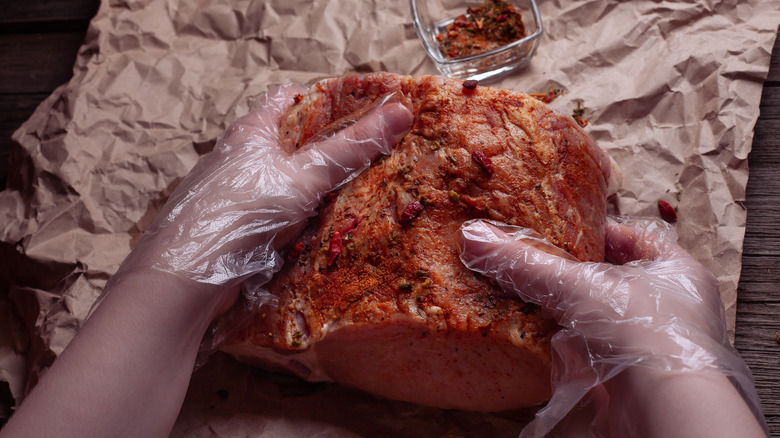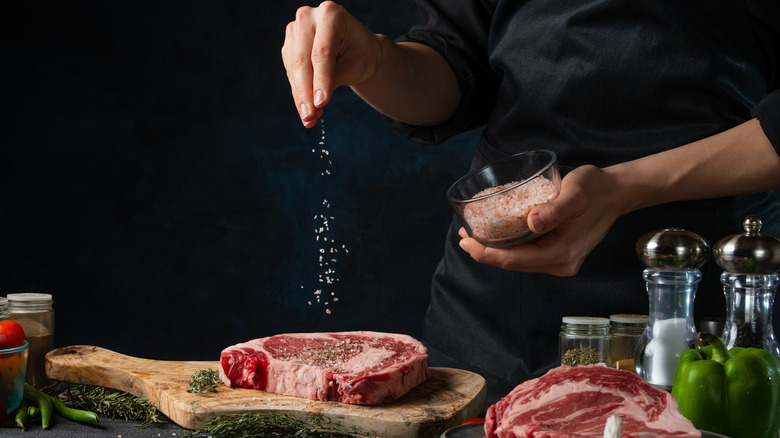You Might Want To Start Using A Salt-Free Dry Rub. Here's Why
If you are a meat eater, you've probably used a dry rub before or have at least heard of this blend of seasonings and spices. As the name indicates, it contains no wet ingredients, and (just like it sounds) this herb-and-spice mixture is rubbed into meat to augment or enhance its flavor.
Many dry rubs are made to complement the flavor of a specific meat, but others are marketed as all-purpose. Dry rubs are easy to find in your supermarket's spice aisle, in specialty stores, and online. Alternatively, you can make your own dry rub by following a recipe or by using your intuition and flavor preferences with ingredients you already have in your spice rack.
Of course, you can always marinate your meat as well, but Bon Appétit says that for flavor and texture, they prefer dry rubs over marinades for delivering taste and an "exceptionally-textured exterior." Dry rubs also differ from a dry brine in that you don't rinse off a dry rub (as you would with a brine) — and unlike brines, which must be left on for hours, dry rubs can be applied to the meat shortly before you cook it, says the article.
But where does salt come into the dry rub picture? Everyone knows salt is the ultimate flavor enhancer. It also provides balance, makes meats taste juicier, and intensifies the aroma and flavors of just about everything (via Fine Cooking). So, of course, you'll want to salt your meat before cooking it, but the question is: Should salt be part of the rub itself?
Pro tip: Make sure salt goes before the rub
In short, it's better to salt your meat separately, and do so before using a spice rub. According to the website Meathead's Amazing Ribs, salt — unlike herbs or spices — has the ability to penetrate the muscle of the meat. And this is exactly what you want it to do, so that the entire piece of beef or pork, or your whole turkey or chicken, is salted all the way through — not just on its surface. This takes time, so it's important to salt your meat before you apply the dry rub, says the site.
Specifically, adds Serious Eats, when you have a thick cut of meat, such as steak, you should ideally salt it for at least 40 minutes before cooking. Similarly, according to Life Hacker, you should season your meats with salt "well before you apply your dry rub," as in a few hours or a few days (this applies more to thicker cuts, such as pork shoulder or brisket, and less to thinner cuts, adds the article.)
The also website says that, unlike salt, a dry rub made of herbs, spices, and sometimes sugar contains flavorful chemical compounds that are larger than sodium chloride (salt), and thus, they don't penetrate beyond the surface of the meat.
According to Life Hacker, you can purchase some pre-made rubs that are salt-free, but most contain up to 50% salt. Instead, follow your favorite dry rub recipe, and if it includes salt, just skip it entirely or cut back on the amount called for, opting instead to salt your meat separately beforehand.

